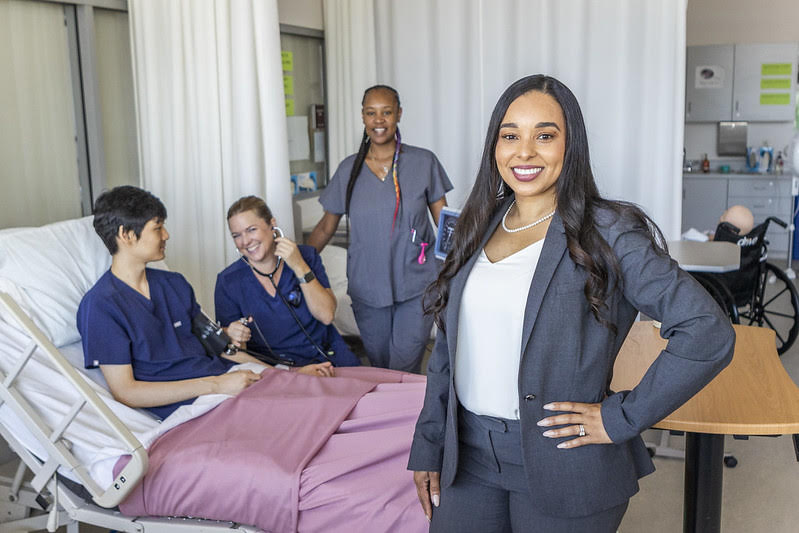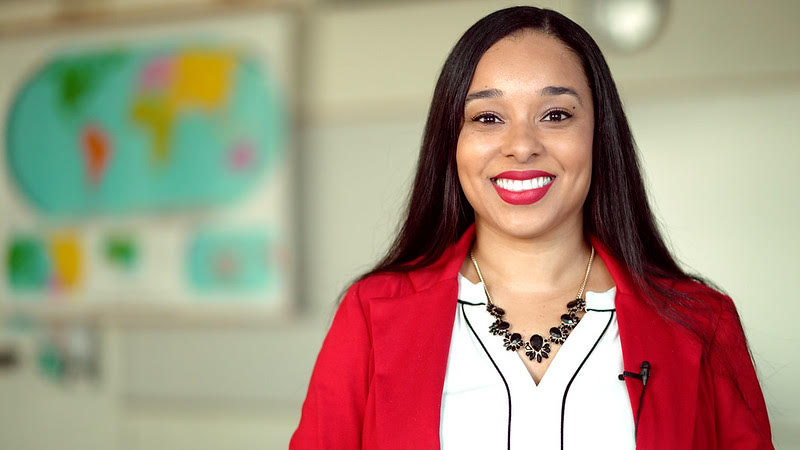Dr. Tina M. King, an Afra-Latina educator, transitioned from teaching in Beverly Hills to Compton Unified School District, and is now set to lead San Diego College of Continuing Education. Her personal journey of embracing her heritage has enriched her leadership and commitment to inclusivity.
At twenty-two years of age, Tina M. King was teaching in the Beverly Hills Unified School District. While attending an event, a principal from another district approached her and suggested she teach in the Compton Unified School District, where she could make a difference in students’ lives and “pay it forward.” “She saw in me this Afra-Latina woman who came from a community very similar to Compton,” says King, Ed.D. The principal viewed King as a community organizer, a positive role model, and relatable to Compton students because she had “lived it.”
Dr. King heeded the advice and began teaching in Compton, staying there for seven years before moving on to higher education, first at UCLA, then at Cal State, Fullerton. But she longed to serve at a college that supports students who are like her, at a school that is a beacon of hope in the community. “When you talk about access for all and the mission and vision of the California Community College System, this is where you see the most diverse students,” says Dr. King.
The community college system tugged at her heartstrings. “I wanted to serve students who look like me and came from communities like I did,” says Dr. King, now president of San Diego College of Continuing Education.

Community Colleges Transform Lives
Born and raised in Los Angeles, Dr. King comes from a migrant family and is a product of the California Community College System, as was her mother. Her grandparents on her mother’s side migrated from Mexico in the 1970s to toil as farmers. Her father’s parents came from Louisiana and Mississippi. “I went to every community college system in Los Angeles you can think of,” says Dr. King. The community college system transformed her mother’s life and altered the trajectory of Dr. King’s life. Now, it’s changing her children’s lives.
As a humanitarian academic leader, Dr. King strives for social justice reform and accessible, equitable, and innovative quality education and career training for adult students. Her desire to support communities and students of color who share her background began in Compton, where she performed daily student services for at risk students. “I was writing grants so that my students could get free shoes. We wrote grants so our students could have laptops or computer devices because the district was extremely underfunded,” says Dr. King.
San Diego College of Continuing Education (SDCCE), an HSI with 37 percent of its students identifying as Hispanic, served about 17,000 students in 2021-22, and averaged almost 36,000 students in the three years leading up to the pandemic. Unlike the credit colleges of California, SDCCE does not require proof of residency from its students. “Anyone can take our classes for free in California,” says Dr. King. In close proximity to the Mexican border, SDCCE is where Hispanic students are comfortable bringing their rich cultures and celebrating them.

The Power of Symbolism and Visibility
In a community college system with 116 colleges, Dr. King is the sole Afra-Latina president and, therefore, understands the importance of symbolism and visibility. To maintain visibility and show those SDCCE students who look like her and share her background that they too are represented at the highest level of education, she produces a staggering number of professional videos announcing upcoming events and inspiring and praising students and associations.
Visibility and symbolism are not the only reasons she produces videos featuring her broad smile, welcoming tone, and enthusiasm for education. Since a significant number of SDCCE students are undocumented, dreamers, and refugees, she always considers the variety of backgrounds her students possess and assumes not every student is going to read the school’s literature. “How do you speak to people without making them feel inferior? I try to humanize myself. I’m saying, ‘I’m normal too, I can laugh, I can giggle,’” says Dr. King. Her videos make her relatable in the community she serves.

Leading with an Equity-Minded Approach to Education
Whether or not technology creates equity in education depends on how well it’s deployed and executed. Using those technologies that saw US colleges through the pandemic, SDCCE is now meeting students’ multiple needs by offering face-to-face, online, and HYFLEX courses. Students in HYFLEX courses can attend a class face-to-face or access it online, depending on their schedules and lifestyles. Students running late for a class because they’re sitting on a bus stuck in traffic, for example, can log into their class and participate without losing valuable seat time.
To assist digitally challenged students, each of SDCCE’s seven campuses has a digital navigator, a tech-savvy individual who supports students on SDCCE’s various platforms. For those students who don’t own a digital device, SDCCE created a loaner device program.
When Dr. King is not inspiring students who look like her to achieve their dreams, producing inspirational videos, or meeting students’ various modalities, she’s teaching a graduate course at San Diego State University on equity-minded approaches to student success. This required course for master’s students explores how organizational structures, funding, and policy impact the most vulnerable students, using a theoretical framework established by Estela Bensimon of USC. “We challenge our students to think critically and outside the box, and prepare them to go into spaces as equity-minded warriors and to advocate for their students and the community they serve,” says Dr. King.
On the wall of her office hangs a framed picture of a Sankofa. Rooted in Ghana, the Sankofa is a symbol encouraging individuals to learn from their history, so they repeat the positive aspects and abandon the negative. Although Dr. King majored in liberal studies as an undergraduate, she minored in Pan African studies so that, as a Mexican and Black woman, she could understand her identity and history and carry both into the future. “Forty years ago, K-12 wasn’t teaching the way we should have been learning about black individuals and African studies,” says Dr. King. “Pan African studies helped me be very proud of being Afra-Latina. When you were growing up, back in the day, you felt like you wanted to conform and be like others because academia set it up so that this idea was dominant. Being able to learn about my culture and being Mexican and Black really helped me to feel proud and lead with that.”